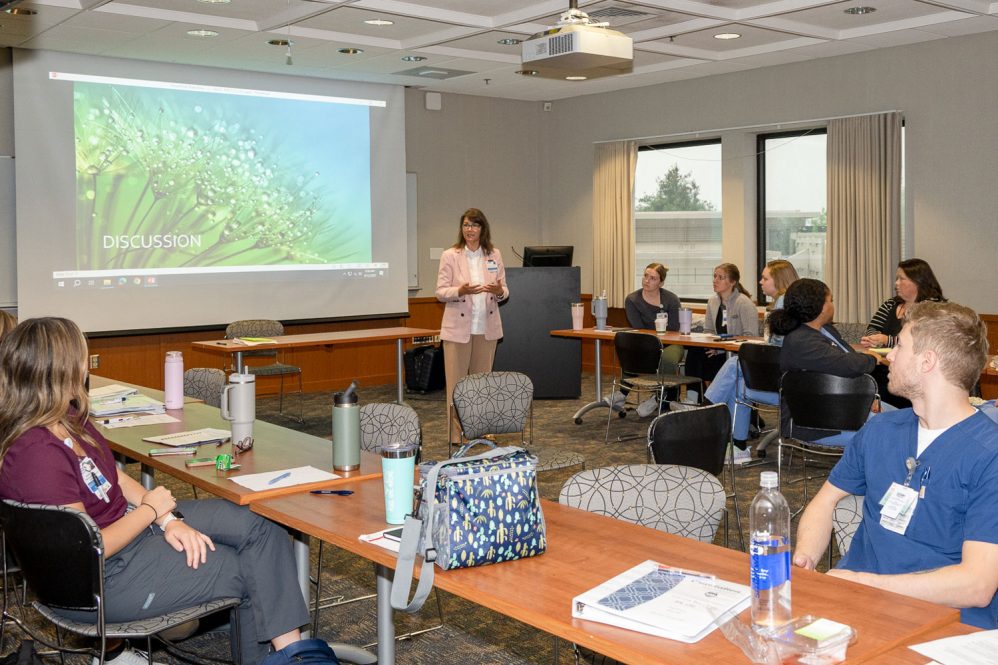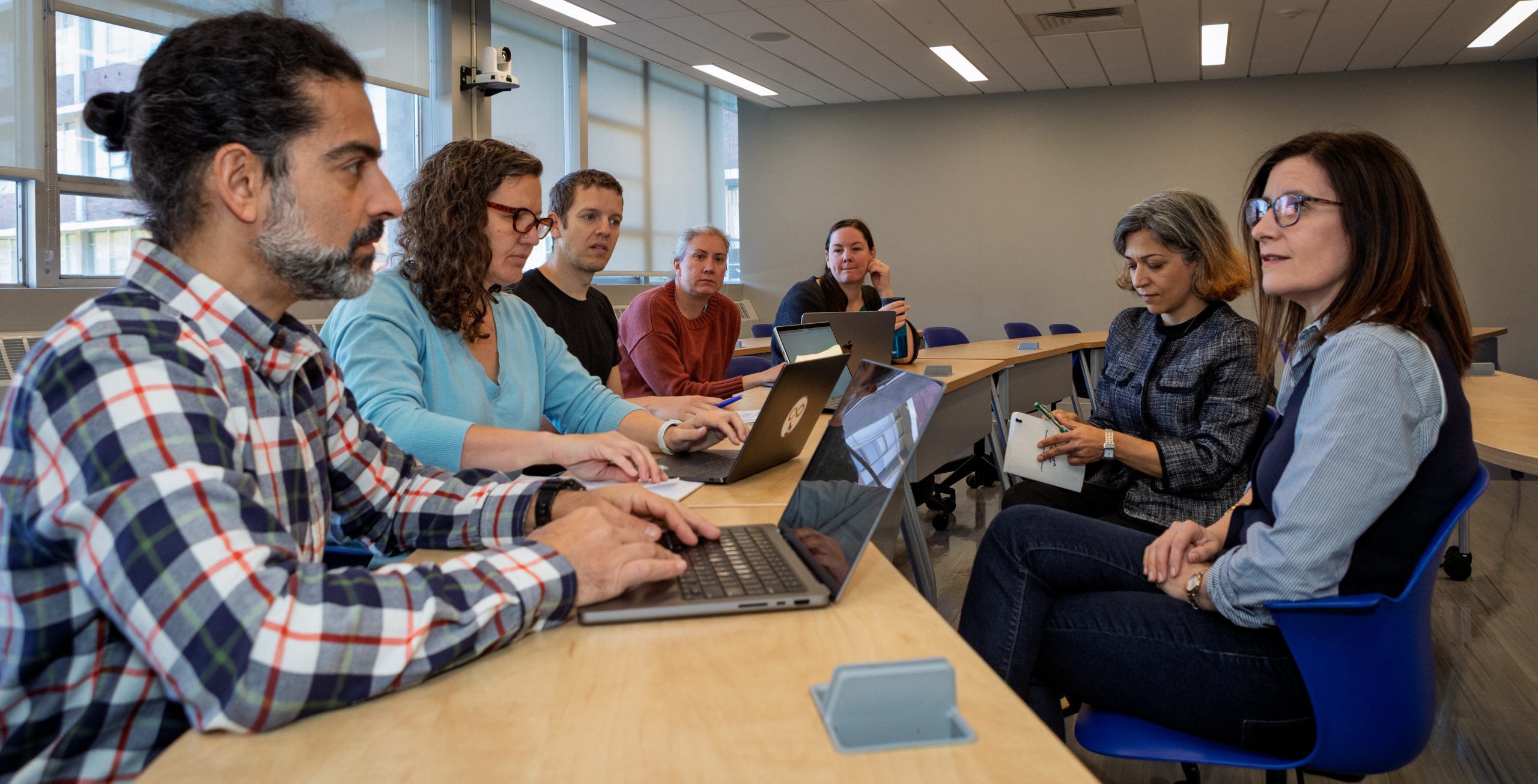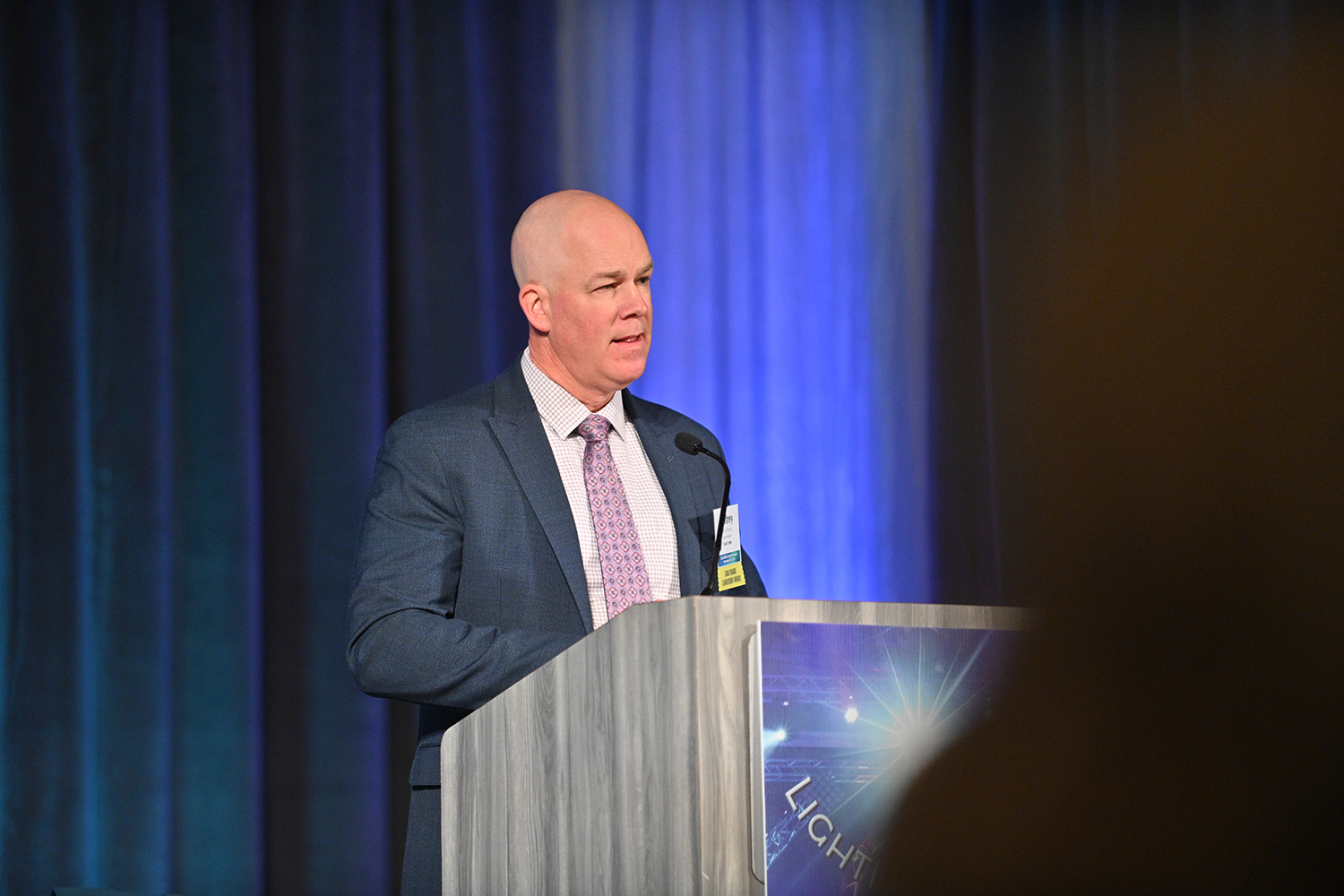UConn Health is onboarding its largest-ever group of recent nursing school graduates, under a new program that runs concurrently with their first six months on the job.
Historically it was uncommon to have more than three or four nurses fresh out of nursing school join UConn Health at the same time. As the numbers grew, an informal series of workshops on topics such as stress and burnout, team building, what it means to be a nurse, and developing a sense of community started taking shape.
We’re putting our new-graduate nurses in a position not only to succeed, but also to want to remain at UConn Health. — Caryl Ryan
It’s led to a more formal program, essentially a residency program for new nurses, with this group of 32, who started July 28, being the first cohort.
“What we’re doing is a new-grad nurse transition to professional practice program,” says Amy Zipf ’23 (NUR) Ph.D., the clinical nurse specialist who oversees the program. “We’re using resources that are out there; most of the resources are from the American Nurses Association. They’ve been working with these programs for many years.”
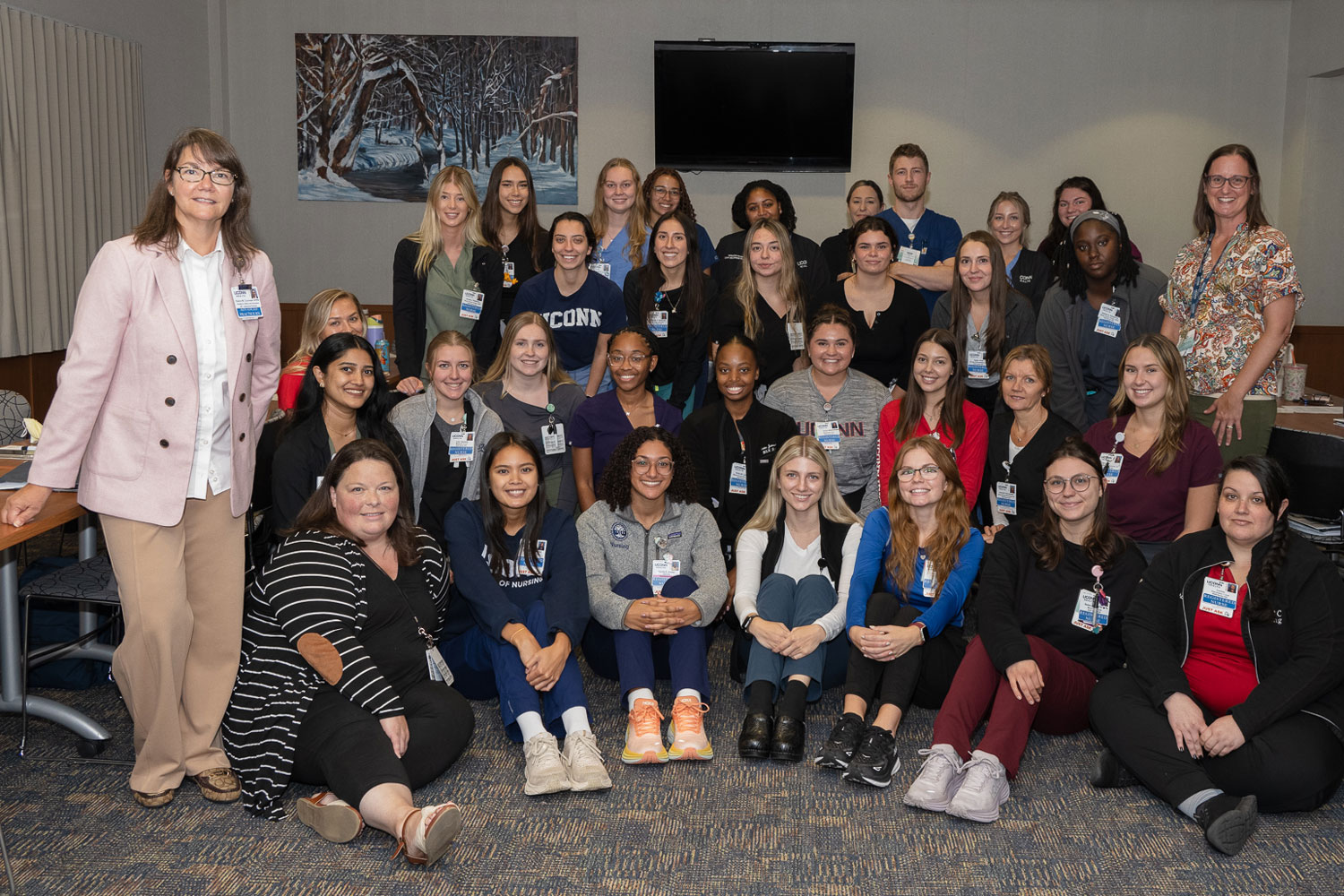
Topics include cardiac rhythm, sickle cell disease, palliative and end-of-life care, and critical care skills; broader issues such as diversity and inclusion and bias and microaggression; and workplace-specific matters such as performance evaluations, picking up overtime, and generally, being a nurse at UConn Health.
“The big purpose really overall is to, as a cohort, help them learn and grow and become a UConn nurse, and really see this as a place that they want to spend their nursing career, and a place that takes the effort to create an environment that’s really welcoming, a learning environment where they can grow and thrive,” Zipf says. “We’re trying to give them tools to be healthy, balanced, whole people, so that they can enjoy their profession, and that they can enjoy it for a lifetime.”
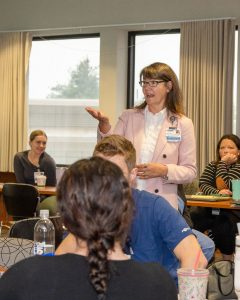
The other primary instructor is Elaine Cournean ’12 MSN, APRN, an educational and development specialist. Among the portions of the curriculum she leads is resilience training developed by the Massachusetts-based Kripalu Center for Yoga and Health.
“It’s an experiential program that’s facilitated by a certified RISE facilitator, which I am, and it’s based on six core skills for developing behaviors and inner resources to manage workplace stressors,” Cournean says.
RISE is an evidence-based program that teaches strategies for combating stressors that can lead to health care provider burnout, for example.
“One of the things to address burnout is developing a sense of community,” Cournean says. “We’re emphasizing that new nurses who are graduating and starting their new jobs are part of a community, and UConn as a whole, as an organization, is addressing the importance of their employees, and caring for their employees by providing these navigational tools. Perhaps outer systems can’t be changed, but how can we change inner systems or our inner resources so that we’re able to sustain, through not only work, but our lives?”
The instructors emphasize that this RN residency program would not be possible without support from the top. Chief Nursing Officer Caryl Ryan has made it a priority.
“This is an important and worthy investment in our workforce, and by extension, our patients,” Ryan says. “We’re putting our new-graduate nurses in a position not only to succeed, but also to want to remain at UConn Health. This nurse residency program ensures that we are continuing to support our new graduates as they transition into their own professional practice. Due to the challenges throughout the last three years, it is tremendously important that we take the time to continue to educate and mentor our nurse graduates through this crucial time of their learning as they adjust to the start of what we hope will be long careers as UConn Health nurses. Thank you to all of our professional practice staff, along with Amy and Elaine, for the development of this extraordinary program!”
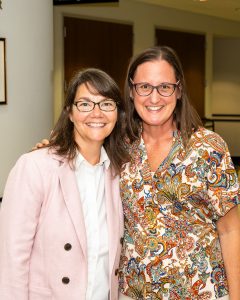
Larissa Morgenthau ’00 (NUR), ’04 MS, the nursing director who oversees nursing education and professional development at UConn Health, notes UConn Health’s growth has brought increased opportunities for new-graduate nurses.
“These nurses are the future of UConn Health, and we’re thrilled to be part of their lifelong journey and growth,” Morgenthau says. “In proposing the nurse residency program, I was met with strong and immediate support from Caryl Ryan and with passionate support from Amy Zipf, who had previously implemented classes for new graduate nurses’ orientation. The success of our program and nurse residents is also due to the excellent work of our teams of nurse educators, preceptors, nurse managers and nursing directors.”
The nurses’ attendance at these workshops can require staffing adjustments to cover their absence from their work area, but it’s accepted as a sacrifice worth making.
“This is part of their work week,” Zipf says. “We want to be able to give people tools in a program that isn’t extra work. It really serves them better that way. And really, Caryl’s approval of the program and her engagement with leadership to make it happen is a huge part of its success.”
Cournean adds, “Caryl is changing the culture of the organization by letting this program come to fruition.”
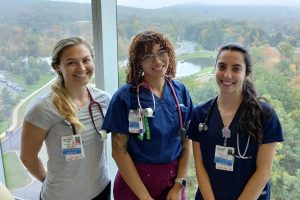
One of the participants is Olivia Rosen, recent graduate of Goodwin University’s nursing program, who works in the UConn John Dempsey Hospital Intermediate Unit.
“This RN residency program has provided me the educational tools and support, which have enhanced my confidence as a new-grad RN,” Rosen says. “The emphasis on safe and high-quality patient care, in-depth review of policies, and department-specific speakers encourages new-grad nurses to learn different aspects of the hospital while building a great foundation as an RN.”
About one-third of the cohort graduated from the UConn School of Nursing.
Zipf says the nurses have been receptive to the program.
“They ask really good questions, they’re really engaged,” Zipf says. “They’re largely a young group. They keep us on our toes.”
And she says it all goes back to cultivating an environment that attracts and keeps good nurses.
“We really want to do what we can to invest in them as whole people, because, I mean, I’m selfish, I want them to work at UConn Health for the rest of their lives,” Zipf says. “But really, the goal I hope for them is that they find that the profession of nursing, like it did for me, serves them as a whole person throughout their life, regardless of where they work.”
